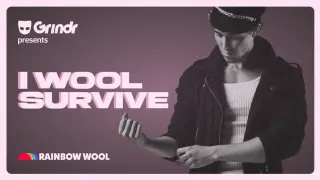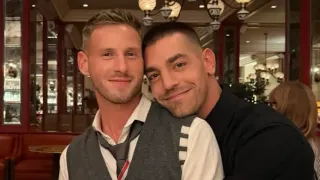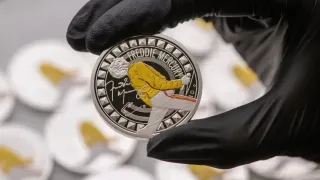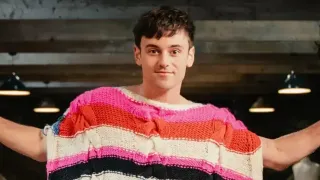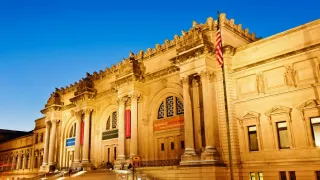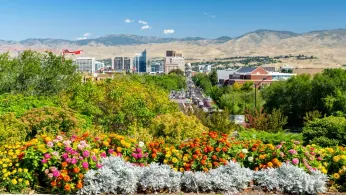
7 hours ago
Is Boise the New Queer Frontier? How Idaho’s Capital Became an LGBTQ+ Surprise Hit
READ TIME: 3 MIN.
If someone told you a decade ago that Boise, Idaho would become one of the fastest-growing queer communities in the Western U.S., you’d probably have laughed, checked your map, and gone back to making Pride plans in Seattle or Portland. But in 2025, the punchline has changed: Boise is now a bona fide LGBTQ+ destination, with a rising number of queer residents, a visible social scene, and a reputation as an affordable, welcoming alternative to coastal queer meccas .
Boise’s queer renaissance didn’t happen by accident. The city’s progressive shift began with its influx of young professionals and remote workers during the pandemic, many of whom brought their big-city values and expectations for diversity. Local organizations like the Boise Pride Festival committee, Add the Words Idaho, and Boise Queer Collective have been instrumental in championing visibility, fighting for equal protections, and creating safe spaces for transgender people, nonbinary folks, and all sexual orientations .
Boise’s Pride Festival, once a modest gathering, now attracts thousands, with 2025’s event featuring headliners from RuPaul’s Drag Race and a parade that snakes through the city’s thriving downtown. The festival’s organizers have prioritized intersectional representation, ensuring events are led by and centered around transgender people, BIPOC queer folks, and rural LGBTQ+ voices .
So what gives Boise its “wait, this town is queer now?!” sparkle? Start with the city’s historic downtown, where rainbow flags flutter on Idaho Street and queer-owned cafes like Black Owl Coffee host poetry readings and gender-affirming clothing swaps. The city’s affordable housing—Boise’s rents are close to the national average and far below those of Seattle or San Francisco—makes it possible for young queer people to set down roots, start businesses, and build community .
Boise’s nightlife is equally unexpected: from The Balcony Club, the city’s flagship LGBTQ+ bar, to pop-up queer dance parties in converted warehouses, the energy is creative and grassroots. Drag shows, open-mic nights, and lesbian speed dating events fill the calendar. Unlike some larger cities, Boise’s community feels tight-knit—everyone seems to know each other, and new arrivals are greeted with genuine warmth .
Boise’s government has also stepped up: the city council passed a non-discrimination ordinance covering sexual orientation and gender identity in employment, housing, and public accommodations. While Idaho state law still lags in some areas, Boise’s local protections, visibility campaigns, and advocacy for transgender-inclusive healthcare have made it a model for smaller cities in conservative states .
Grassroots efforts—like Add the Words Idaho’s campaign to include “gender identity” and “sexual orientation” in statewide anti-discrimination laws—continue to fight for change, with Boise as the organizing hub .
Boise’s queer influence is spreading: neighboring towns like Garden City and Meridian are seeing their own LGBTQ+ meetups and inclusive events. Local schools host Gay-Straight Alliance chapters, and Boise State University’s Gender Equity Center provides resources and support for students and faculty of all identities .
Transgender people in Boise report easier access to gender-affirming healthcare and supportive providers, a critical improvement over previous years. Nonbinary people and younger LGBTQ+ residents cite Boise’s growing number of queer-friendly therapists, legal clinics, and community centers as key factors in choosing to stay .
Boise’s rise hasn’t gone unnoticed. National LGBTQ+ travel platforms like misterb&b now list Boise among the “Safest US Cities for LGBTQ+ Travelers in 2025,” and media outlets highlight its transformation from a flyover town to a must-visit queer hotspot . Boise’s place on these lists reflects not only its improving safety and affordability, but also its spirit of grassroots innovation and intersectional inclusion.
For many, Boise represents the future of queer America: less about big-name scenes and more about building vibrant, supportive communities where everyone—transgender people, bisexuals, asexual folks, and allies—can thrive. As one local organizer told Queer Money Podcast, “We’re not just making Boise queer. We’re making it home, for everyone who needs it” .
